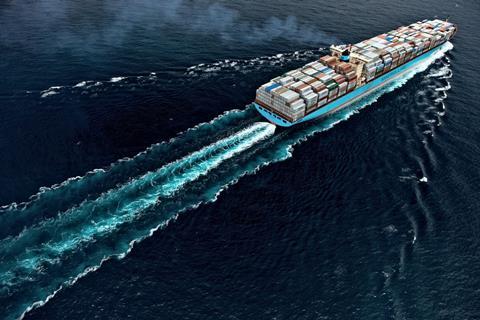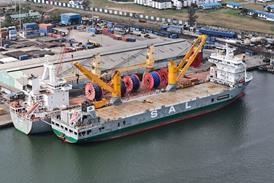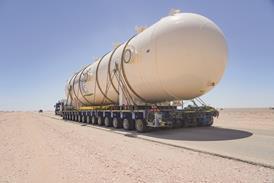Maersk has secured green methanol from Dutch producer OCI Global for the maiden voyage of the world’s first methanol-enabled container vessel. 19 vessels are scheduled for delivery in 2024-2025.

The 21,500 km trip from Ulsan, South Korea to Copenhagen, Denmark will provide real operational experience for Maersk seafarers handling the new engines and using methanol as fuel, as the company prepares to receive a fleet of new, large ocean-going methanol-enabled ships from 2024.
“The green methanol market is still in its infancy and frankly we had not expected to be able to secure a maiden voyage on green methanol for this vessel. So, we are very proud to have achieved this significant milestone. We expect a diverse green fuel mix for the future, with green bio-methanol from biomass waste being available now,” said Morten Bo Christiansen, head of energy transition at Maersk.
OCI produces its green methanol at a US-based facility by using captured biogas from decomposing organic waste in landfills. This The biogas is upgraded to biomethane and injected into the gas grid, and the methanol is produced from the biomethane in the grid on a mass-balance basis, said Maersk. This way, green methanol can be produced in existing facilities using existing infrastructure and plants enabling a quick production.
HLPFI detailed Maersk’s future plans, including the launch of Maersk Project Logistics (MPL), in our recently published ships and shipping lines supplement, which was published alongside our May June 2023 edition. Maersk is renewing its fleet with greener tonnage rather than expanding. It has 19 container vessels on order, all capable of running on green methanol.
Apart from a feeder (which will be delivered this year), they are in the 16,000-17,000 teu range and will hit the water between 2024-2025. An equal amount of tonnage will exit the managed fleet.
“In 2021, we decided that all future owned newbuilds should be able to operate on green fuels and to maximise our progress towards net-zero supply chains in 2040, we have set ambitious near-term targets. By 2030, 25 percent of all cargo should be transported using green fuels. We are committed to the growing number of our customers who look to decarbonise their supply chains. More than half of our largest customers have set – or are in the process of setting – ambitious science-based or zero-carbon targets for their supply chains,” said Tim Killen, global head of growth at MPL.
















